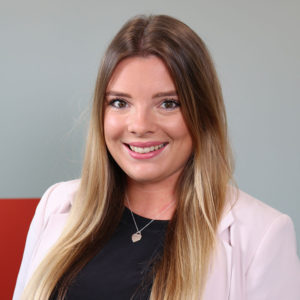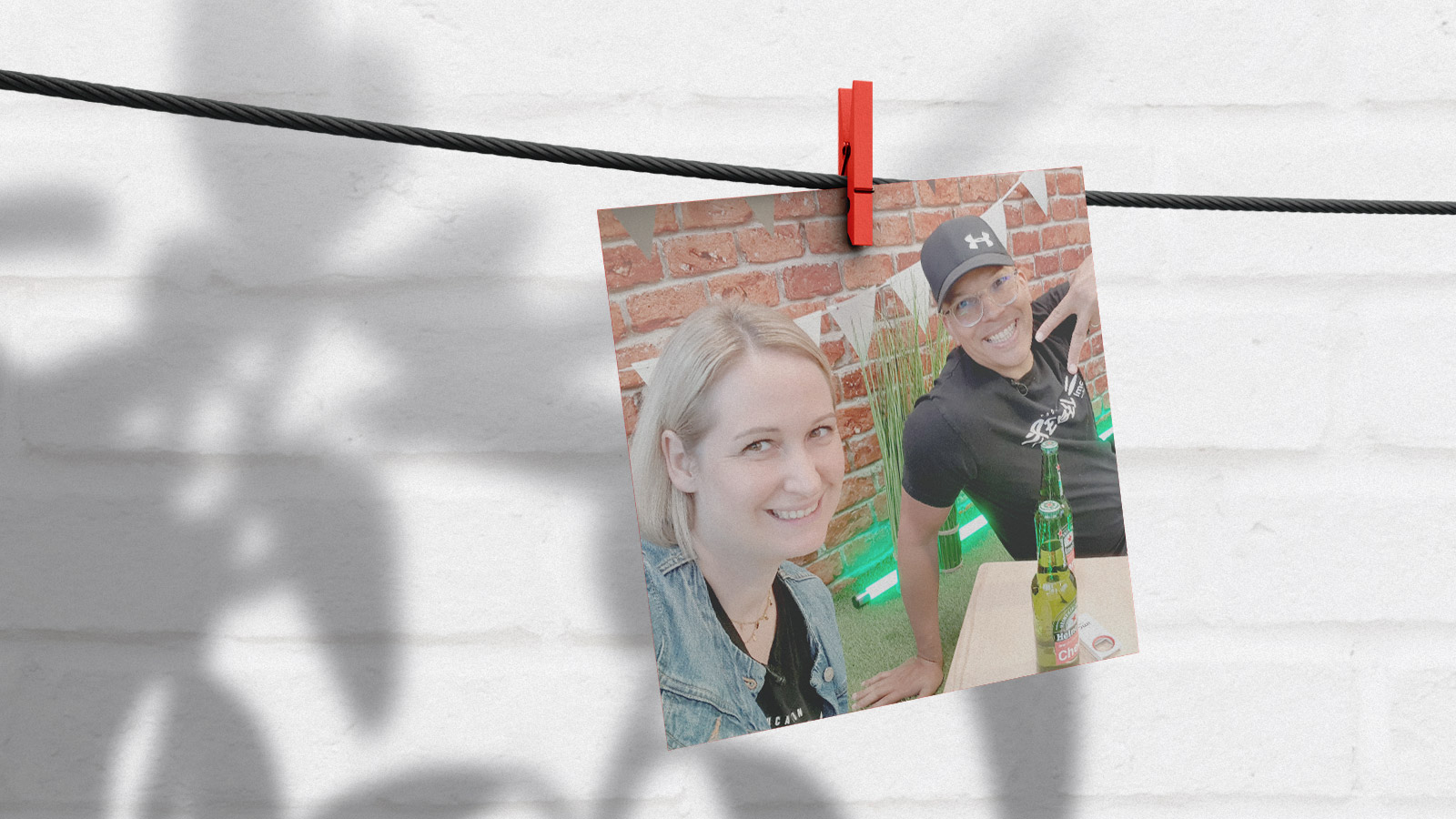
New work at imc: Shaping the work culture of tomorrow
What the development of a shared working world with the best possible outcomes for employees, customers and the organisation looks like
New work is in. Everyone’s talking about it. There are discussions about flexible working hours, new office concepts or even the 4-day week. All these models focus on one thing: companies want to put employees in the focus and create a working environment in which creativity, self-determination and flexibility are lived.
This change is also actively driven forward at imc. We therefore spoke with a New Work pioneer, who is helping to manage the process. In the move! interview, Kerstin Steffen reveals what is meant by performance culture instead of attendance culture, why imc decided against a total change to home office work and what role managers play in all this.
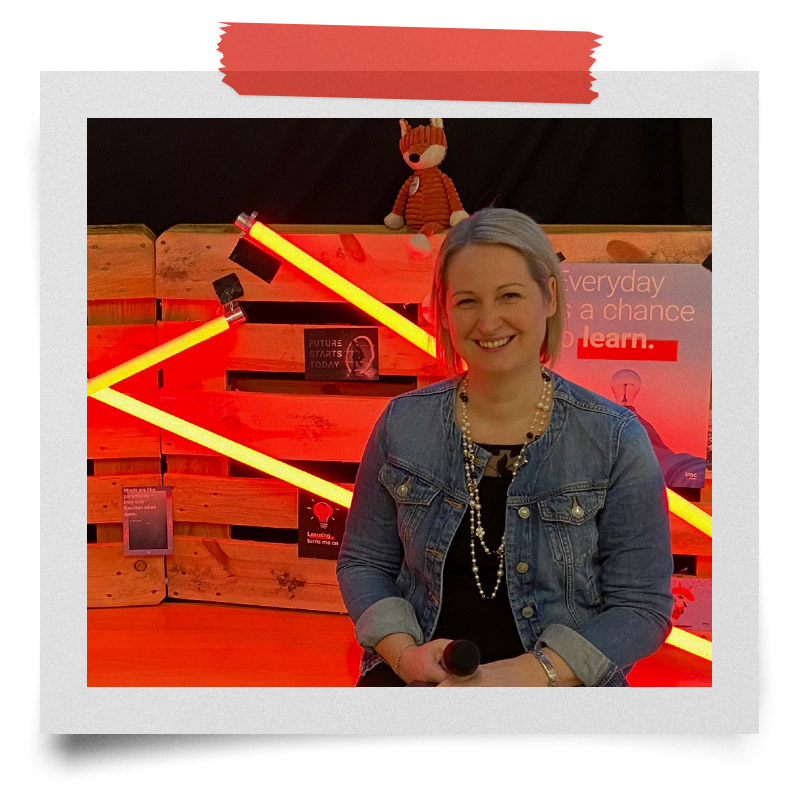
Kerstin Steffen
Director Brand Strategy and New Work Pioneer

Hello Kerstin! Thank you for making time. imc has recognised that a new work culture is needed and started the New Work Initiative. When did you start the “transformation phase” and why did you take this step?
Kerstin Steffen: We were tied to our home offices for almost two years because of the corona situation. That already gave us many opportunities for development. Before we embarked on the actual transformation, we were facing the question: “Is it actually reasonable to take a step back, or should we continue pressing ahead?” We made the decision to move to a “100% flexible but not 100% remote” model. The transformation phase serves to smooth the transition to the new official, hybrid work model we will adopt in 2022. We want to offer the teams the opportunity to try out and test things, and to incorporate their experiences into the new work culture.

100% flexible but not 100% remote – What exactly does that mean?
Kerstin Steffen: Simply put, it means that our activities are no longer tied to the office as a matter of principle, but the company affords us the flexibility to decide whether we want to work from home or from the office. You could also describe it as performance over attendance culture. We have no fixed attendance quota, but time in the office should be agreed with the team and the manager, and flexibility must not compromise organisational objectives.
While we firmly believe in flexibility, we clearly decided against moving all work to the home office. The relationship and commitment to the company remains very important to us. We want our offices to remain a place of communication and interaction – and that applies to official team meetings as much as personal discussions over a coffee.
You established a New Work Pioneers team. Which departments do the team members come from? How do you collaborate?
Kerstin Steffen: The core team of the New Work Pioneers is based at the headquarters in Saarbrücken where the decision to embark on the New Work Initiative was made. We selected the team based on competences and included members from Internal IT, HR as well as Communications. That allows us to bring together the core competences to support process changes within the pillars of people, technology and spaces. Of course, we can add members that contribute other skills as and when we need them.
We hold regular meetings at least once a week, where we discuss and prioritise all the topics in our target plan, as well as any issues that arise. At times, the core team is split into smaller project teams. For instance, we maintain regular feedback loops with the managers of our different offices to get everyone involved. It also helps us see where improvements are needed and highlight how we might provide support from the headquarters.
Can you summarise the objectives of the imc New Work Initiative in one sentence?
Kerstin Steffen: The overarching goal is to develop a working world together that generates the best possible outcomes for us as employees, our organisation as well as our customers in the given context and situation. In other words: We love being flexible, but this is tied to the condition that the corporate objectives are met and performance is maintained.
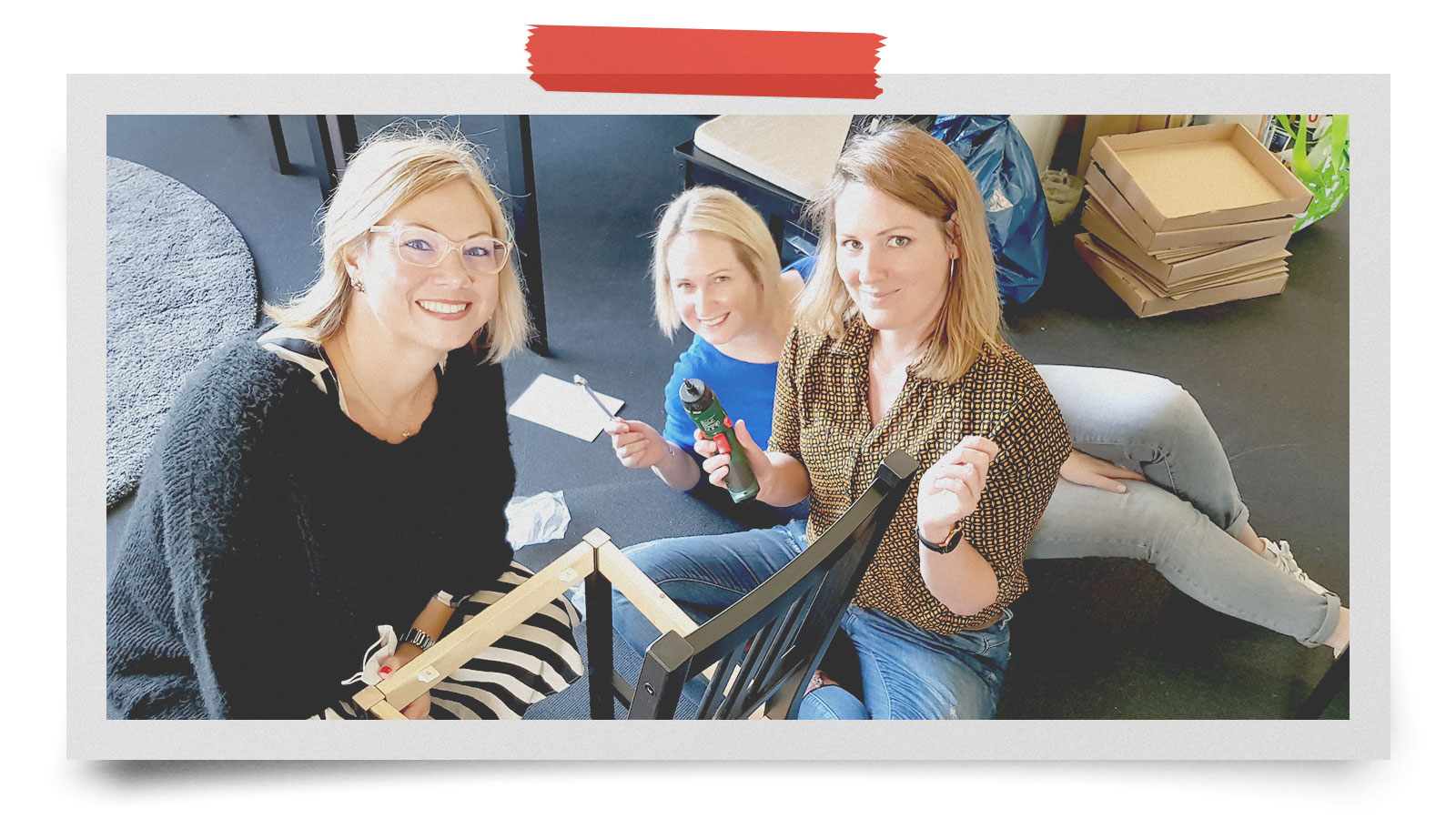
Would you say this mindset is what makes new work at imc so special? What is the difference between your approach and the total switch to home office work other companies have realised?
Kerstin Steffen: We are a digital brand and stand for learning. Naturally, we want to understand modern formats and establish ourselves as a pioneer. Yet, compared to the key players in the market, we still have some catching up to do. Nevertheless, I would like to emphasise that this was a fantastic step for imc, and that our colleagues and applicants already consider it an absolute benefit. Working together to drive and shape cultural change is also a huge opportunity – and I invite everyone to seize it. We can be fairly sure that this is not a universal prospect offered by all companies, which makes it a USP for us.
Personally, I really want to see every single person benefitting from it. That means we also need to be open to constructive criticism and listen to concerns, no matter how excited we are about our ideas and progress.
We are all learning together throughout this change process, and our success is dependent on wide-spread acceptance.
What role does remote or virtual (team) leadership play in this transformation?
Kerstin Steffen: It is very much a matter of mindset. We know that team leaders and managers play a key role, because they represent the corporate values and culture to a great extent and infuse the company with these. We adapted the leadership model and developed three new pillars or principles: Lead, Coach and Care. Our managers receive targeted training to develop and enable them to realise these principles and respond to the new circumstances. Based on my experience, I would say traditional management elements should be combined with agile methods. While I’m a huge fan of digitisation, I believe that digital tools are no substitute for personal contact. We consider hybrid formats a great opportunity, but gradual development is key. We are already holding intensive talks and testing various formats.
Managers also need to learn to place more trust in their employees and to be more organised themselves. Flexibility also involves walking away from rigid principles and allowing new things. It is important that managers adjust their mindset to support this.
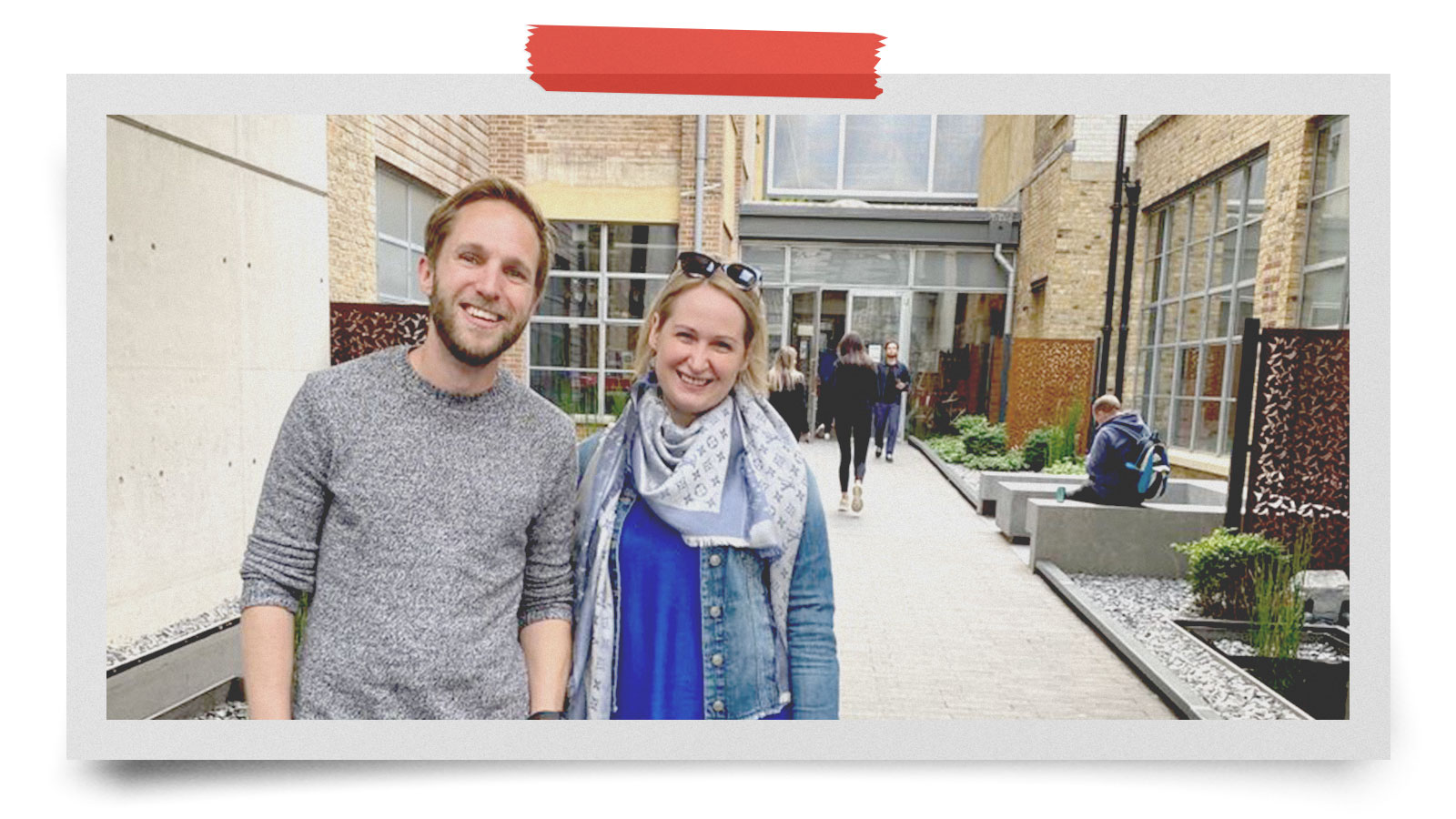
What were the biggest challenges? How did you respond to them?
Kerstin Steffen: We are facing challenges every day, and I’m sure that will still be the case after the transformation. We are really looking at an agile learning process – for our leadership as well as things like our hardware, office equipment or seating arrangements. Being spread out across different locations on different continents doesn’t exactly make it easier, but we are welcoming that challenge. We might not be 100% perfect, but we genuinely try to create a new work culture step by step. We are all highly motivated and rather proud to see our first successes taking shape.
Internal Communications and HR contribute a lot of the support for the measures. It is important to us that the changes are transparent and successes are visible.
How was the transformation phase communicated to the employees? How can you avoid unsettling employees?
Kerstin Steffen: Communication in itself is always important! Once the decision had been made, we first informed the team leaders and asked them to talk to their teams and relay any unanswered questions to us. We then made a global announcement through the official executive channel in the form of a virtual event and sent out an info email with a recording of the official announcement. In addition, we created points of contact in the intranet where information can be obtained, and key questions are answered. New formats were introduced to provide information as well as encourage employees to participate in the dialogue. Of course, the Transformation Team is always available to answer any questions.
Beyond our efforts to inform, each team is invited to help shape the transformation and to identify what is important for the team. We created a global framework. It is now up to each team where they go with that and how they develop it.
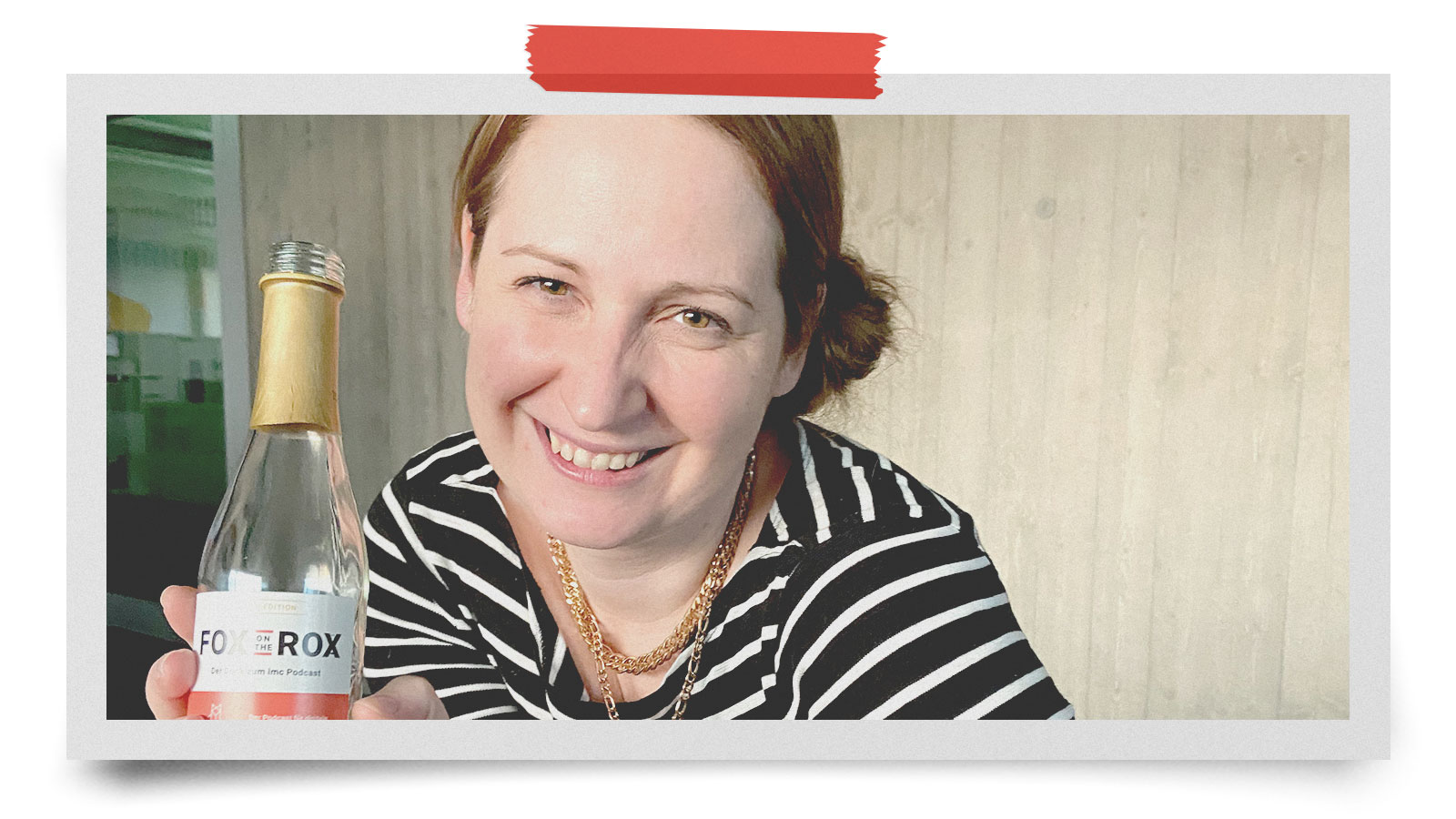
What is the employees’ response to the initial changes? Have you received positive or negative feedback yet?
Kerstin Steffen: The feedback we received was mostly positive, which motivates us to drive the transformation. Naturally, concerns and worries were voiced, but that is to be expected in any change process. It is important to take that seriously and actively offer support. It is easy to get carried away, and we must remind ourselves that it is not only a major change in the organisation, but also a cultural shift. That demands sensitive and responsible support.
You still want to trial and test various things. What can we look forward to at imc? What else have you planned?
Kerstin Steffen: First of all, we improved our internal communication channels and created new channels to strengthen team spirit. For instance, we started a newsletter that plays a key role in actively providing information and highlight success stories. We want to make small steps visible, initial successes tangible and let employees share in the experience.
The new formats we created aim to enhance collaboration and communication. The offer will gradually grow: We will create global guidelines, hold workshops and include smaller learning nuggets.
We will also incorporate formats such as social learning, informal learning and user generated content. Our brand ambassadors are also actively helping to shape the transformation. Measures like our BarCamp, Espresso Webinars and Flow & Focus sessions are already well-established and successful. Of course, we will develop these further and make them more professional. As to the strategic aspects, the adaptation of our leadership programme will be crucial, and we are professionalising our operational model.
Thank you for your time, Kerstin! We are excited to see what you have in store for us.

Contact person
I' ve been working as a permanent member of the imc Marketing & Communication Team since 2021. The mix of creative content creation, social media and online marketing activities excites me the most about my job.
My goal is to inspire people with creative and innovative content and to make the imc brand more tangible.
My passion besides my job? Travelling a lot and discovering the world. I am always happy to receive feedback or suggestions at [email protected]!
